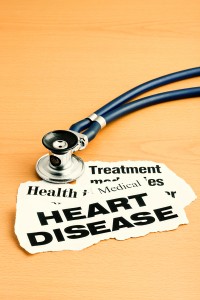 Occasionally misplacing keys or forgetting to keep an appointment can happen to anyone. Forgetfulness is a common complaint in older adults. While memory loss can be a part of the aging process, it is important to understand what is normal and when to be concerned.
Occasionally misplacing keys or forgetting to keep an appointment can happen to anyone. Forgetfulness is a common complaint in older adults. While memory loss can be a part of the aging process, it is important to understand what is normal and when to be concerned.
Normal Memory Loss vs. Dementia
Memory loss is an expected part of the aging process. In fact, it is natural for older adults to become easily distracted. Failing to remember details of a conversation or where things were left, occasionally forgetting an appointment, and not being able to retrieve thoughts that are “on the tip of your tongue” are not early warning signs of dementia but natural occurrences typically experienced by most individuals as they get older. However, if symptoms are frequent and are a cause of concern for family members, you should make an appointment with a physician.
Dementia is an impairment of thinking and memory that interferes with a person’s ability to do things that he or she was able to do before. There are different forms of dementia that can affect a person as they age. The most commonly known forms are vascular dementia and Alzheimer’s disease. Vascular dementia is a decline in thinking skills caused by conditions that block or reduce blood flow to the brain, therefore, depriving brain cells of oxygen and nutrients. Risk factors for vascular dementia are the same as risk factors for heart disease. These factors include age, high cholesterol, high blood pressure, smoking, and a sedentary lifestyle. Many of these vascular factors can increase your risk for Alzheimer’s disease.
Alzheimer’s disease is a progressive condition of the brain, which causes problems with memory, thinking and behavior severe enough to affect ones work and social life. Early signs of Alzheimer’s disease can include:
- Memory loss that disrupts daily life
- Challenges in solving problems
- Confusion with time or place
- Withdrawal from work or social activities
- Decreased or poor judgment or changes in mood and personality
Medication can also have an effect on your memory. Maintain a list of your medications, as it may be helpful to explain temporary memory lapses. Medication such as sleeping pills, antihistamines, blood pressure, arthritis medication can have an effect on memory since they are processed more slowly in older adults.
Preventing Memory Loss
“There is no cure for Alzheimer’s disease or reversing the effects of dementia, but there are ways of keeping your mind sharp as you age,” says Dr. Peter Barra, Medical Director and Geriatric specialist at Flushing Hospital Medical Center.
Dr. Barra suggests the following to help reduce your risks of age related dementia:
- Keep the mind busy by reading books, completing puzzles and socializing.
- Don’t smoke and keep your blood pressure, cholesterol and blood sugar within recommended limits.
- Eat a healthy and balanced diet along with exercise to maintain a healthy weight.
- Limit your alcohol consumption.
For a consultation or for more information on the geriatric services at Flushing Hospital, please contact 718-670-5454.
All content of this newsletter is intended for general information purposes only and is not intended or implied to be a substitute for professional medical advice, diagnosis or treatment. Please consult a medical professional before adopting any of the suggestions on this page. You must never disregard professional medical advice or delay seeking medical treatment based upon any content of this newsletter. PROMPTLY CONSULT YOUR PHYSICIAN OR CALL 911 IF YOU BELIEVE YOU HAVE A MEDICAL EMERGENCY.


